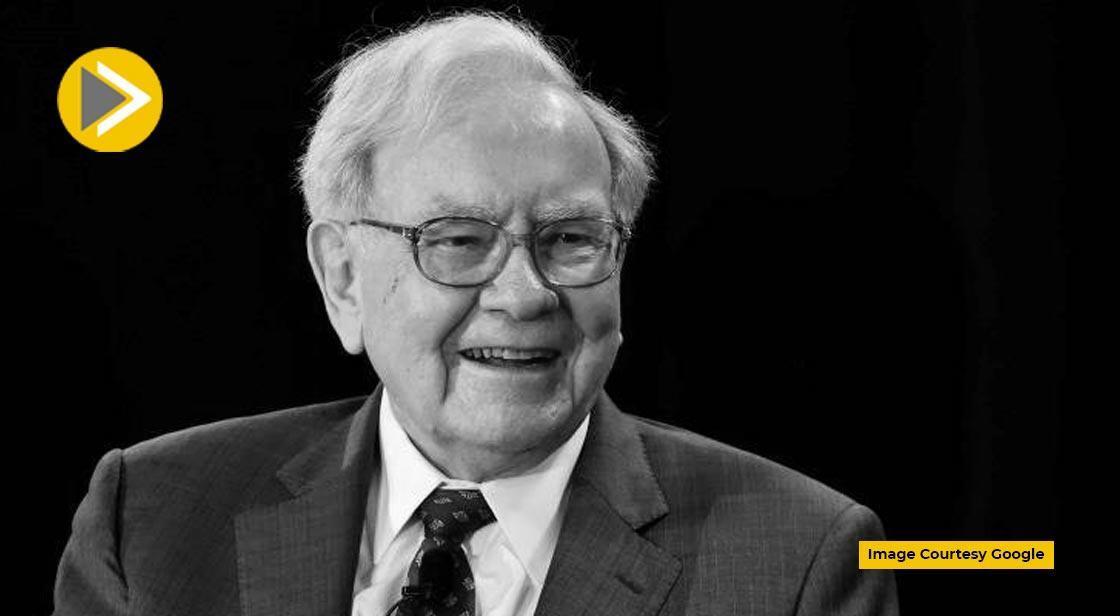Warren Buffett Slams Trump’s Tariffs, Calls Them a Burden on US Consumers

News Synopsis
In an interview with CBS that aired on Sunday, the legendary investor remarked, "Tariffs are actually—we've had a lot of experience with them—they're an act of war, to some degree."
Buffett, known for his keen economic insights, explained that tariffs ultimately function as a tax on consumers rather than a financial burden on foreign nations. He quipped, "The Tooth Fairy doesn’t pay ‘em!"—emphasizing that American buyers bear the brunt of these trade policies.
Trump’s New Tariff Hikes and Their Impact
The criticism comes amid the President Donald Trump administration's push for new tariffs that will take effect starting Tuesday. The latest measures include:
-
A 25% tariff on goods from Canada and Mexico
-
An increase in tariffs on Chinese imports from 10% to 20%
Economists warn that these tariff hikes will lead to higher prices on consumer goods, including automobiles, electronics, and household products.
Concerns Over a Possible Trade War
The move has heightened fears of another global trade war. China has already retaliated with its own countermeasures, while the European Union is also in Trump’s crosshairs for what he describes as “reciprocal tariffs.”
Many economic experts believe that such policies could slow down global trade and negatively impact market stability. The US stock market has already seen fluctuations as investors react to the increasing trade tensions between the US and major trading partners.
US Commerce Secretary Dismisses Buffett’s Concerns
Despite Buffett’s warnings, US Commerce Secretary Howard Lutnick dismissed the criticism in an interview with a media agency, calling it "silly."
Lutnick even suggested that tariffs could be an alternative to the Internal Revenue Service (IRS), implying they could replace income tax collection. However, his historical claims were inaccurate—he incorrectly stated that the IRS was created during World War I, when, in reality, the agency dates back to the Civil War, with federal income tax becoming permanent in 1913.
Buffett’s History of Criticizing Tariffs
While Warren Buffett did not elaborate much on his "act of war" remark, he has historically opposed tariffs.
In 2016, he publicly criticized Trump’s trade policies, describing them as "a very bad idea." Over the years, he has consistently warned that protectionist measures can backfire, hurting consumers and the economy.
Buffett Remains Optimistic About US Investments
Despite his concerns over tariffs, Buffett remains bullish on the US economy. He reiterated his long-held belief that America is "the best place" for investment.
His firm, Berkshire Hathaway, currently holds a record cash reserve of $334.2 billion, following major sell-offs, including stakes in Apple and Bank of America. This financial strategy suggests Buffett is waiting for better investment opportunities amid market uncertainty.
Conclusion
Warren Buffett’s critique of Donald Trump’s tariff policies underscores the deep economic and political tensions surrounding trade protectionism. By labeling tariffs as “an act of war,” Buffett highlights their far-reaching consequences, not only for international trade relations but also for American consumers who ultimately bear the cost.
The escalating tariff battle, particularly with Canada, Mexico, and China, raises concerns about potential retaliatory measures, increased consumer prices, and disruptions across industries.
Despite the economic uncertainty, Buffett remains optimistic about U.S. investment opportunities, with Berkshire Hathaway holding a record $334.2 billion in cash reserves. His past warnings about Trump’s trade policies reinforce concerns among economists about long-term economic impacts.
While the Biden administration may take a different stance, Trump’s tariff policies continue to shape global trade discussions. As debates over protectionism versus free trade intensify, investors and policymakers must navigate the challenges posed by these shifting economic dynamics.
You May Like









